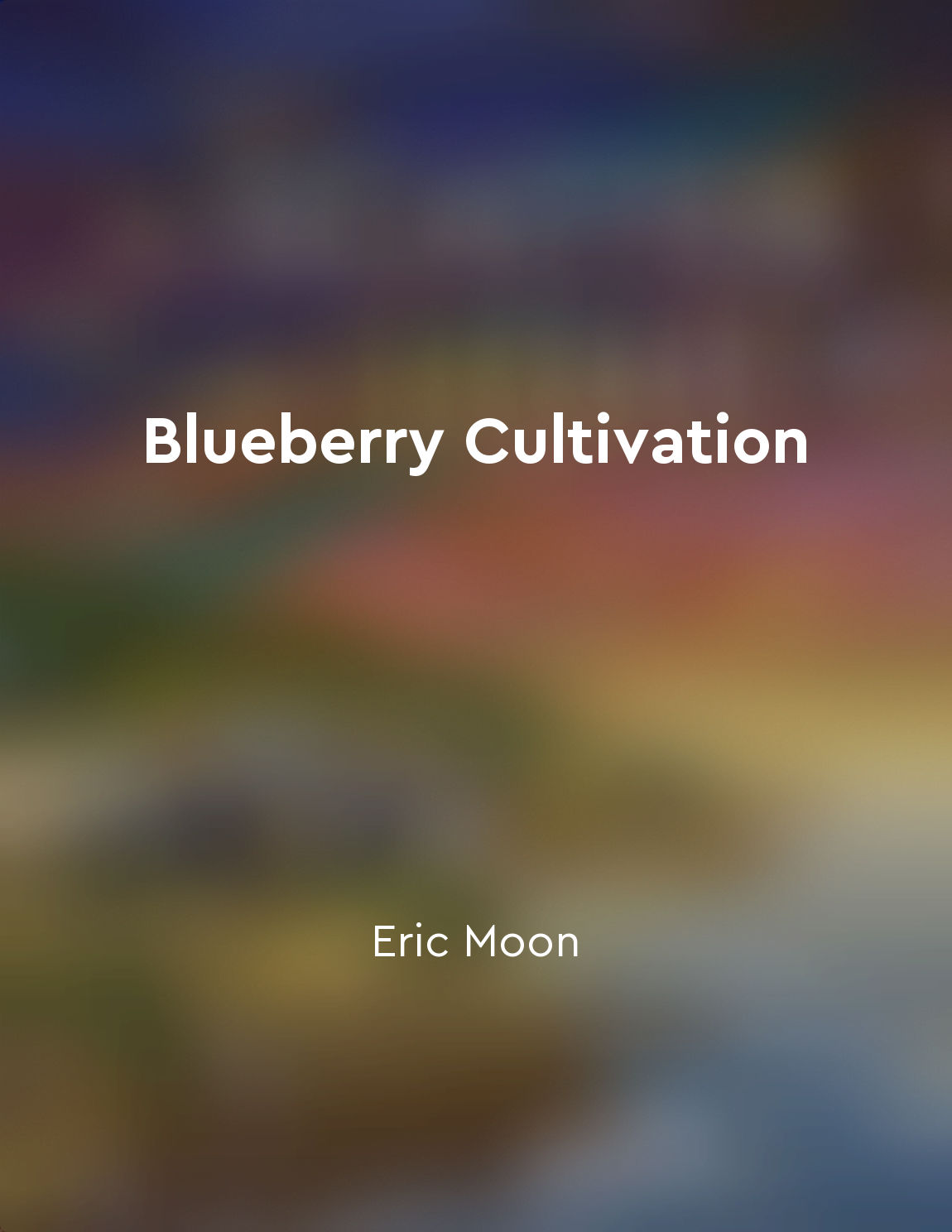Pest management is a major concern in blueberry cultivation from "summary" of Blueberry Cultivation by Eric Moon
Pest management is a critical aspect of blueberry cultivation, as pests can cause significant damage to the crop if not properly controlled. Various pests can attack blueberry plants, such as insects, mites, and diseases, leading to reduced yield and quality of the berries. Insect pests like blueberry maggot, blueberry gall midge, and cranberry fruitworm can cause extensive damage to the berries, affecting both the quantity and quality of the harvest. These pests can feed on the fruit, causing it to become deformed or discolored, making it unsuitable for sale or consumption. Mites are another common pest in blueberry cultivation, with species like the blueberry bud mite and the rust mite causing damage to the plant by feeding on the leaves and buds. If left unchecked, mite infestations can weaken the plant and reduce its ability to produce healthy berries. Diseases are also a significant concern in blueberry cultivation, with fungal diseases like mummy berry, Botryosphaeria stem blight, and powdery mildew posing a threat to the crop. These diseases can spread rapidly in the field, causing widespread damage and leading to reduced yields if not managed effectively. To address these pest problems, blueberry growers need to implement a comprehensive pest management strategy that includes monitoring for pests, using cultural practices to reduce pest pressure, and applying chemical or biological control measures when necessary. By staying vigilant and taking proactive steps to manage pests, growers can protect their blueberry crop and ensure a successful harvest.Similar Posts

Home gardening is sustainable
Home gardening is a way of life that embodies sustainability in its essence. When we grow our own food at home, we are actively...
Chemical companies prioritize profit over ecological health
Chemical companies, driven by the pursuit of profit, often neglect the consequences of their actions on the environment. The de...

Probiotics play a key role in immune health
Probiotics, those friendly bacteria that inhabit our digestive system, are crucial players in the maintenance of our overall he...
The beauty of the natural world inspires awe
The grand show of nature charms and captivates the observer with its endless variety and beauty. The diversity of life forms, f...

Ecosystem
The intricate web of relationships between creatures large and small; the dance of life that plays out in every nook and cranny...
Food marketing targets vulnerable populations
Food marketing is a powerful force in our society. It shapes our food choices, influences our eating habits, and ultimately imp...

Trees can live for centuries, passing down knowledge through generations
Trees have the remarkable ability to live for centuries, far surpassing the lifespan of any individual human. Over the course o...
Native plants offer food and shelter for insects, birds, and other wildlife
Native plants are the cornerstone of our ecosystems. They have evolved alongside local wildlife over thousands of years, formin...
Innovative solutions are being implemented
The ingenuity of individuals and communities has sparked the implementation of creative and unconventional solutions to pressin...

Food labels can be misleading
Food labels are our window into the world of processed foods. They promise us a glimpse of what lies within the package, a snea...

